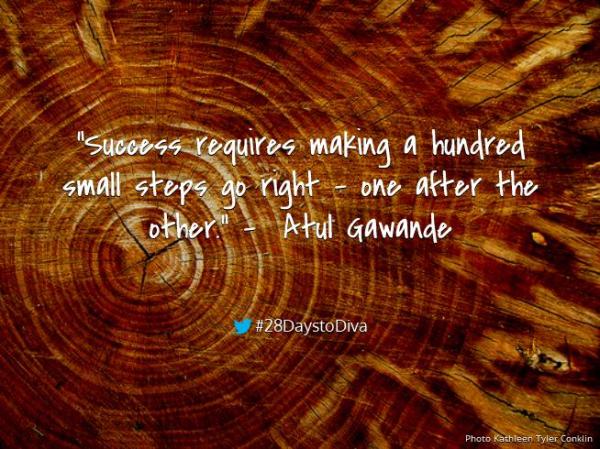There is no general public – especially when you are a young or emerging singer. There is a direct correlation between effective communication within your network and ‘butts in seats’. There is another correlation between higher tickets sales and being asked back for future performances. As you mature, you will be contracted to perform for organizations and venues that have larger networks. Those networks are not random either. They have a legacy of executive and artistic directors, public relations teams, and past artists that have built their reputation over time.
Your Day 12 challenge is to Write an Outstanding Pitch. 

We began to cover this topic last year in 28 Days to Diva: Day 10 – Take Your Recital to the People! In our ten tips for reaching out to the public to create buzz, we barely scratched the surface with pitch letters and press releases. Pitches and press releases are two different beasts even though they have similar elements. If you are inviting media to cover your events, a pitch letter is often more useful. Pitch letters bring a personal connection back to your communication. This is a different email than the one you were writing yesterday, but there is still a living soul on the other end who is glancing through your communiqué. As journalists see more press releases, without so much as a simple salutation, the more important it becomes to write a personalized pitch.
Exercise Your Writing Skills
Use an upcoming performance to make this exercise the most effective.
Prewriting
Identify your reader. You must use a proper salutation in your business writing (even if it is in a Facebook message. h/t to the one and only Cindy Sadler) As a refresher, you should use Dear, [the person’s title and name], and a colon. If you do not know the gender of your reader, you may use their full name. For example, “Dear Sam Jones:”
Now, brainstorm.
Describe your event in persuasive detail: ___________________________
Describe the performers and what makes them unique: __________________
Why should your reader care? ___________________________________
(Read your journalist’s work. Identify what they like and need to write about.)
Why should your reader’s readers care? ____________________________
Where can your reader find more information? _______________________
Practice synthesizing that information into one eye-catching sentence.
________________________________________________________
Drafting
Get to the point quickly in your first paragraph. Use your best one sentence from above at the very beginning. It will describe why you’re writing and why the reader’s audience is interested. Avoid using stock personalization in your communication.
First paragraph: _____________________________________________
Give more information in your short second and third paragraphs about the who, what, when, where, and why of it all. Position this performance as a valuable aspect of the music scene in your reader’s location. Give your reader the bones of a story — and make it an interesting story . Remember to be polite, friendly, and personable. Finally, offer your reader a press pass to the event. Can you think of other offers that would work for different types of writers? Design your offer for your reader.
. Remember to be polite, friendly, and personable. Finally, offer your reader a press pass to the event. Can you think of other offers that would work for different types of writers? Design your offer for your reader.
More enticing information: _____________________________________
Do not forget to include a link to the event website or your website. It may seem simple, but you would be surprised how often people forget to include a link directly to more information. Also, include your detailed contact information at all times. Do not make your reader hunt for that information either or you can kiss your coverage goodbye.
Revising
Make your pitch compelling. You want your letter to make the reader think, “Wow! This sounds like an important event” or “That is a fan-freaking-tastic angle for a story.” Have your reader saying both and you are golden.
What is the strongest part of your letter? ____________________________
What would make the most captivating headline/subject line? ______________
Read through your pitch letter. Is there anything that you wouldn’t like published? Take it out. Assume that whatever information you give the reader will make it into their writing.
What is the weakest part of your letter? How can you revise it? _____________
Proofreading
Eliminate all instances of all caps and exclamation marks as well as unnecessary use of bold, italics, and underline. Take multiple proofreading passes at your writing or have someone else look for spelling or grammar mistakes.
A pitch is just a brief letter, email, or message. Emphasis on brief. The most time-consuming aspect of this challenge is the prewriting stage. Once you have your unique hook and have synthesized it down to one eye-catching sentence, you should have very little issue writing the rest.
Connecting with media professionals is an important part of building a sustainable arts business. When you have news, share it! When you have an upcoming event, share it! Take an active role in creating buzz about your business. Want to give it a try? Send me your pitch letter for the Sybaritic Singer. If you feel more comfortable with 140 characters, find me on Twitter at @mezzoihnen.
